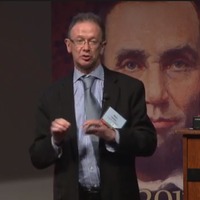
Kevin Niall Dunbar
We, The Laboratory for Complex Thinking, Reasoning & Educational Neuroscience, conduct research that spans the domains of Education, Cognitive Psychology, and Cognitive Neuroscience. The overall focus of our research is to discover and foster the psychologically and educationally important processes underlying Conceptual change and Creativity in the Arts and STEM fields. Our recent research using fNIRS, ERP, and fMRI has been on analogical reasoning, causal reasoning, and facilitating Creativity. The goal of our work is to harness these findings in ways that facilitate the learning and generation of new concepts and facilitate their transfer into the real world. We use controlled laboratory experiments (standard cognitive research), real-world settings (science museums, molecular biology labs, and undergraduate biology labs), genetic analyses (DNA genotyping & DNA microarrays), and neuroimaging methods (fMRI, fNIRS, and ERP to investigate these issues.
Put another way, our work has many important practical implications involving the ways that Creative environments in Science and the Arts are best structured to ensure success. The hallmark of our research is that we investigate creativity in Science and the Arts from multiple perspectives; we use many different methodologies to discover the cognitive, social, and brain based mechanisms underlying both the creation and learning of new concepts. The use of different converging methodologies make it possible for us to provide strategies, procedures, and contexts where people can generate new and original concepts as well as understand difficult concepts that are the bedrock of 21st century education.
Phone: 301 405-7233
Address: Department of Human Development and Quantitative Methodology,
3304 Benjamin Building (#143)
University of Maryland
College Park, MD 20742
Put another way, our work has many important practical implications involving the ways that Creative environments in Science and the Arts are best structured to ensure success. The hallmark of our research is that we investigate creativity in Science and the Arts from multiple perspectives; we use many different methodologies to discover the cognitive, social, and brain based mechanisms underlying both the creation and learning of new concepts. The use of different converging methodologies make it possible for us to provide strategies, procedures, and contexts where people can generate new and original concepts as well as understand difficult concepts that are the bedrock of 21st century education.
Phone: 301 405-7233
Address: Department of Human Development and Quantitative Methodology,
3304 Benjamin Building (#143)
University of Maryland
College Park, MD 20742
less
Related Authors
David Klahr
Carnegie Mellon University
Christian Schunn
University of Pittsburgh
Isabelle Blanchette
Université du Québec à Trois-Rivières
Bo Christensen
Copenhagen Business School, CBS
Paul Thagard
University of Waterloo
Phillip Wolff
Emory University
Pasi Pohjola
National Institute for Health and Welfare
InterestsView All (22)





Uploads
Papers by Kevin Niall Dunbar